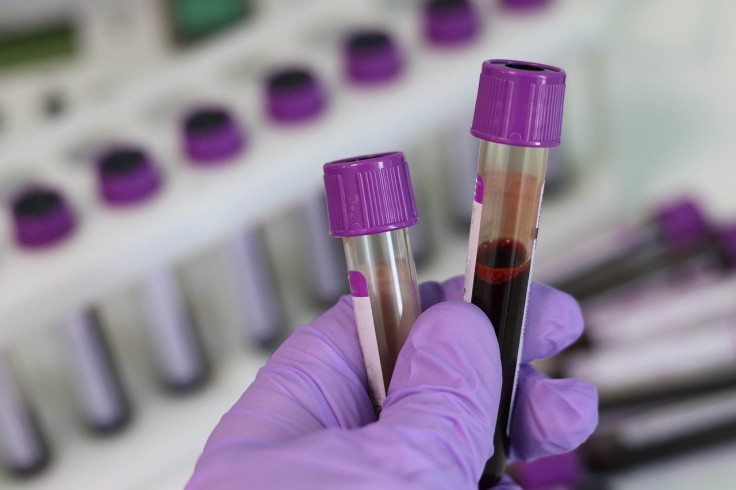'Germ Bomb' Warnings As Sudan Fighters Seize Lab Containing Pathogens; What's The Threat?
KEY POINTS
- The National Public Health Laboratory has reportedly been seized
- There are concerns that a confrontation may happen at the lab
- The conflict has been significantly affecting health services as well
The unrest in Sudan may be forging a new kind of threat. A laboratory containing pathogens has been seized amid the strife, posing the threat of a "germ bomb."
There's a significant biological risk in place, as Sudanese fighters breached the National Public Health Laboratory in the Sudanese capital of Khartoum, the World Health Organization (WHO) warned Tuesday.
The agency did not specify whether the breach was carried out by the Sudanese military or the Rapid Support Forces (RSF), but according to CNN, the RSF forces were behind the takeover.
"There is a huge biological risk associated with the occupation of the central public health lab in Khartoum by one of the fighting parties," WHO representative Nima Saeed Abid said, as per the outlet.
The situation is "extremely dangerous," he noted, as the laboratory contains isolates of various pathogens including measles, polio and cholera.
Measles is considered to be among the most contagious diseases in the world, according to the WHO. A measles outbreak can be "particularly deadly" in places that are experiencing or recovering from events like a disaster or conflict due to disruptions in health infrastructure and services.
Polio is a "disabling and life-threatening" disease that can spread from one person to another and infect the spine, causing paralysis. Cholera, on the other hand, is a diarrheal illness that can affect people if they consume contaminated food or water. In some cases, the infection can be severe or even life-threatening. And in such conflict situations, complications could lead to substantial outbreaks.
Such was the case in Haiti where a cholera outbreak ensued amid civil unrest and violence. As of October 2022, there were 123 confirmed cases, 996 suspected cases and 37 deaths. A previous cholera outbreak in Haiti reportedly claimed more than 9,000 lives.
The threat posed by the laboratory seizure calls to mind the continued concerns regarding the potential laboratory origins of COVID-19 from the Wuhan Institute of Virology. The evidence, some reportedly claim, points to an accidental lab leak as the source of the infections.
In the case of Sudan, the country has already been facing outbreaks of multiple diseases including measles, polio, malaria and dengue, Dr. Ahmed Al-Mandhari, WHO regional director for the Eastern Mediterranean, said at a press briefing. With the added factor of the conflict in the country, the concerns about the isolates of these pathogens in the laboratory are quite understandable.
"(T)he danger lies in the outbreak of any armed confrontation in the laboratory because that will turn the laboratory into a germ bomb," a source told CNN.
So far, the WHO reportedly noted that trained laboratory personnel have not had access to the laboratory, which lists COVID-19, pandemic viruses, epidemic bacteria and tuberculosis as its "important" tests.
In addition, the laboratory has also been experiencing power cuts, which could be problematic for the biological materials contained at the facility as well as the blood bags, which should be stored at specific temperatures.
The hope is to be able to secure the laboratory amid the rising tensions in the country so as to avoid a biological disaster amid the already grueling conditions. There have also been calls for an immediate end to the conflict so as to protect "the country's poorest people."
This is because of of the important things affected by the unrest is the vital humanitarian support being provided to 15.8 million people in Sudan, from water and nutrition to sanitation and health services. Humanitarian organizations have instead had to halt the much-needed operations.
These things together highlight the critical public health impacts that such conflicts pose on millions of people.
"People who require regular care for chronic diseases are unable to access treatment, and mental health and psychosocial needs, especially among children, are increasing," Al-Mandhari explained during the press briefing.
Blackouts and shortages have also affected hospital functions, and there have also been reports of attacks on health care, sexual assaults on humanitarian workers and even looting of ambulances.
"War has an impact on every aspect of life, beyond those directly injured, and the negative consequences on health can be long term," Al-Mandhari added.
"We call safe passage and a humanitarian truce for health workers, patients, and ambulances. And we urge all parties to the violence to put the safety and security of their own people above all else," he said further.

© Copyright IBTimes 2024. All rights reserved.






















